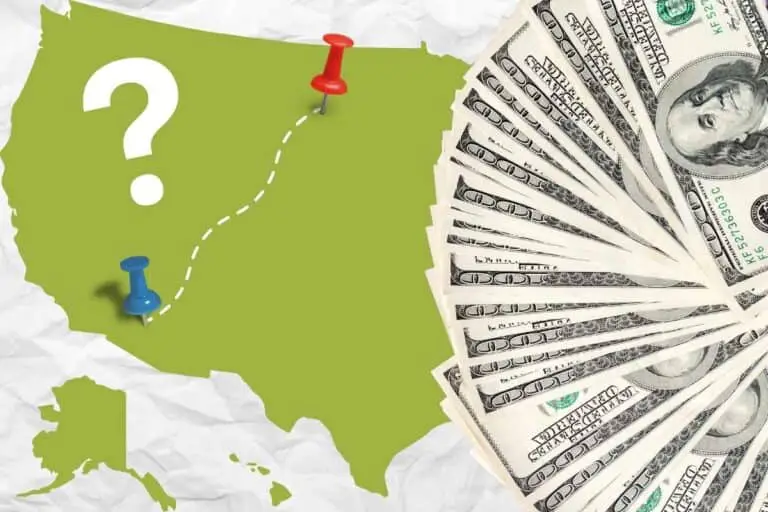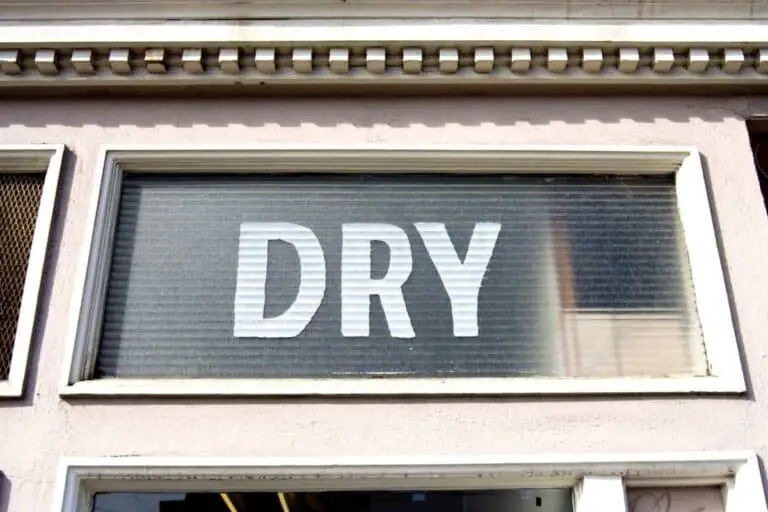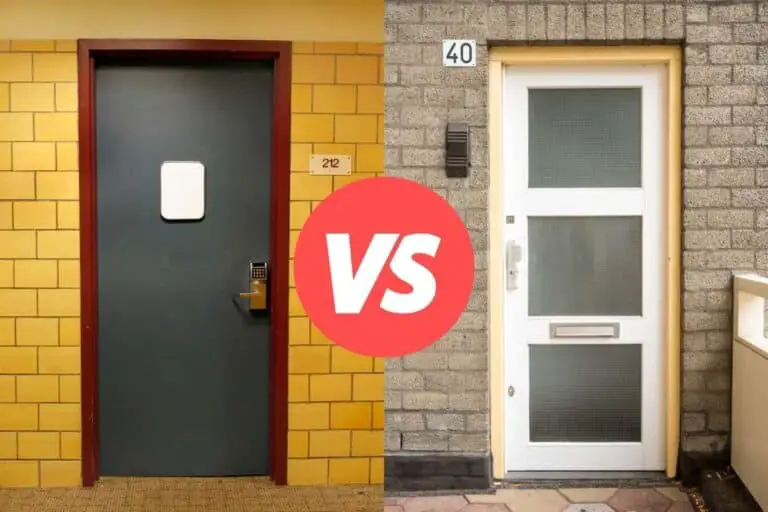Why Are College Students Always Broke?
College is a fun, exciting time in a person’s life. But, college is expensive, especially if you don’t have any scholarships or money saved, and a signature trait of college students is that they are always broke. So why are college students always broke?
College students are always broke because of student loan debt, a lack of understanding of budgeting, and poor money management skills, especially when it comes to credit cards and unnecessary spending. But, there are many jobs for college students and other ways to make money.
This article will explain the financial struggles that college students face and why budgeting and money management are important. Then, we explain how student loan debt affects students and how college students can make money. Finally, there are some resources that students can use to be more secure financially.

Financial Struggles of College Students
College students are often broke, especially if they do not have a job, financial support from their family, or if they take on debt to pay for school. First, let’s look at a few common struggles that students face regarding their finances.
Cost Of College
The cost of college itself is high and increasing.
Depending on scholarships and other financial assistance, college students pay around $10,000 per year at in-state schools and $27,000 per year for out-of-state schools. In addition to tuition, there are books, laptops, and other supplies that students need to buy, which cost more than $1,000 per year on average.
Room and Board
Then, you need to consider the cost of room and board, which costs, on average, between $11,000 and $13,000. The cost can be higher or lower depending on where you go to school, whether or not you live on campus, and if you have a campus meal plan or have a kitchen to cook your own food.
Miscellaneous Expenses
Finally, there are other costs that students have to pay for like transportation, clothes, and other expenses. These cost students more than $3,000 per year, with more than $1,000 from transportation costs alone (source).
These are all necessary costs of attending college, but they are also the bare minimum for living. There are other things that college students, and people in general, spend money on that are above what they need to live, like eating out, alcohol, entertainment, and other unnecessary wants.
These items make the cost of living as a college student even higher, so budgeting is important.
Budgeting Is Important for College Students
A big reason why college students are broke is that they don’t usually budget their income. It may be because they do not know how to budget, or they may just choose not to.
Either way, it is easy to go broke without a budget.
Without a budget, you may not realize how much your expenses are, such as food, housing, tuition, and transportation. Or, you may spend all your money on things you can not afford. So, let’s look at some important budgeting tips and strategies.
Look at Your Spending Habits
You should estimate how much money you spend in different areas of your life. When you make your budget, overestimate your expenses and underestimate your income. You do not want to spend more than you have on expenses, and you do not want to plan to have more money than you do.
Determine Your Income
Next, find out if your family will be helping you with any of your expenses while in school if you need to find a job (or both). If you do not have at least some income while in school, budgeting and paying for your expenses will be very difficult. If you come up short, you should look at getting a part-time job that will align with your classes and studies.
Put Money In a Savings Account, If You Can
Make sure you put some money away for savings. Even if it is only a little bit each week, your savings will add up. You will be grateful for your savings if there is an emergency, when you graduate and need somewhere to live, or when planning a spring break trip with your friends (source).
Track Your Spending
Once you make a budget, track your actual spending for a few months. Then, you can compare it to your budget and make adjustments if needed, whether it means changing your estimated income and expenses or spending less money in certain areas of your life.
Money Management
Once you have a budget, you need to know how to manage your money and follow the budget you created.
The first is knowing what a want versus a need is.
Needs are things like food, housing, and even things you need for college, like books and laptops. For many students, just their needs alone will cause them to go broke, especially if they have no income.
But, buying wants when you are a broke college student will make your situation even worse.
Wants are extra things you can live without, like the newest phone or video game system, a meal or night out, or even impulse purchases. If you do not need the item to survive, and it will not necessarily improve your life, it is a want, and you need to do your best to limit buying wants (source).
Another common money management problem is spending money that you do not have, usually with credit cards.
Credit cards are a type of loan because you can pay for things with your credit card, even if you do not have enough money to pay for it now. If you do not pay off your credit card each month, you will have to pay interest on your credit card, and credit cards have one of the highest interest rates of all types of debt.
And, spending money on wants using credit cards makes it easy for students to go into debt and makes it harder to pay off the card each month. Students do not want to have credit card debt and student loan debt, which we will explain in the next section.
So, wants and needs are important to differentiate, and you need to limit credit card usage if you want to understand money management.
Student Loan Debt
Student loan debt is a problem in the United States, and it continues to get worse every year. There are more than 43 million people in the United States with student loan debt, and the average amount of debt per person is nearly $40,000.
Some loans require you to pay while in school, and some do not. Let’s look at some examples.
Subsidized vs Unsubsidized Loans
First are subsidized and unsubsidized loans, which are federal loans through the United States government. Subsidized loans do not earn interest while in school, whereas unsubsidized loans do.
You are not required to pay on either of them while in school, but you can pay down interest on the unsubsidized loans.
While you do not have to pay the interest while in school, it can save you money in the long run.
The sooner you pay your interest, the less your total balance will end up being, and you may even pay the loan off faster than you would if you waited to pay the interest after you graduated. So, while it is not necessary, some students will pay interest on their loans and have less money while in school, making them more broke (source).
Private Student Loans
Another type of loan is a private student loan, which starts accruing interest right away, even though you usually do not have to pay them right away. If you want to start paying your loans right away, you can, even if it is not required. Similar to the above, it will help you in the long run.
But, if you are a broke college student, you may not want to have to pay your loans while in school. So, make sure you find a private student loan that defers your payments until after you graduate (source).
Ways To Make Money in College
Being broke in college is not fun, especially when you want to spend your college years having fun. But, there are some common ways to make money in college.
Find a Part-Time Job
Get a part-time job while you are in school. Several bars, restaurants, and retail stores will hire college students. And, these jobs have hours available to work that are likely opposite of your classes, like at night or on weekends.
You should also check out places in and close to campus like dining halls, coffee shops, and your college bookstore, which are great places to work part-time while in school.
Federal Work-Study Jobs
There are also federal work-study jobs that are part of a government program.
You can find on-campus work-study jobs through your college’s career center. These jobs are usually part-time with flexible hours since they are meant for students, both part and full-time. Common work-study jobs include library work, tutoring, teaching assistants, and lab proctors (source).
Work-study jobs come with a maximum earning potential, which you can find by talking to your career counselor or on-campus employer. You can also benefit from a work-study program with off-campus jobs, which your school’s career center may also be able to help you find.
Remote/Freelance Work Or Scholarships
You can find remote work online or freelance outside of working a traditional job. Jobs like these let you make your own hours, and you can work as much or as little as you want. You may also be able to find one that correlates with your degree or future career goals.
Finally, you can apply for scholarships, both online and through your school, as a way to make money towards your tuition (source).
Resources for Broke College Students
Besides applying for a job, using the other money-making methods in the section above, and learning to budget effectively, college can be difficult financially. We have listed some great resources for college students to use to make and manage money.
- The Complete Guide to Personal Finance for Teenagers and College Students: This book from Amazon.com has everything college students need to know about managing their finances. Some topics you will learn are making a budget, paying for a car, how to open a bank account, how to save for college, and how to avoid common financial mistakes. There is also a workbook that you can use to start planning your finances.
- The Price You Pay for College: This book from Amazon.com is all about how to pay for college, including how to prepare for college, save for college, and how choosing a college can affect how much money you pay overall. It also helps you consider how much the cost of college is worth to you and your family and how to figure out how you are paying for it, like with financial aid, scholarships, and family money.
This video from The Ramsey Show on YouTube is all about budgeting tips and skills that college students need to know to set themselves up for financial success:
This final video from Mariana’s Corner on YouTube teaches you all about the basics of living on your own in college, including budgeting, buying groceries, cleaning, and preparing for your career:
Final Thoughts
College is often the first time in a person’s life that they are out on their own and in control of their finances.
Not only is college expensive, but college students tend to avoid budgeting and have poor money management skills, in addition to overusing credit cards. All of these factors combined are why college students are often broke.
But, they can make some money by getting a job, applying for scholarships, freelancing work online, and using the resources we listed above. They should also budget and manage their income to ensure it is used in the best way.
Recommended Reading:







